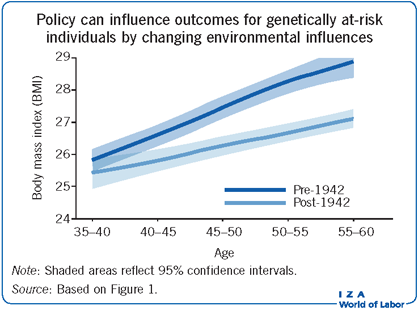Elevator pitch
Both the availability and sheer volume of data sets containing individual molecular genetic information are growing at a rapid pace. Many argue that these data can facilitate the identification of genes underlying important socio-economic outcomes, such as educational attainment and fertility. Opponents often counter that the benefits are as yet unclear, and that the threat to individual privacy is a serious one. The initial exploration presented herein suggests that significant benefits to the understanding of socio-economic outcomes and the design of both social and education policy may be gained by effectively and safely utilizing genetic data.

Key findings
Pros
Genetic data provide a useful way to understand individual differences in socio-economic outcomes.
By understanding the genetic basis of specific outcomes, policies and treatments could be more efficiently targeted.
Recent research indicates that genetic associations with outcomes such as obesity may vary across birth cohorts due to different prevailing environmental contexts.
Differences in genetic inheritance between full biological siblings offer a new source of information to estimate causal effects.
Cons
The majority of evidence so far reflects only simple associations between individual genetic factors and socio-economic outcomes, in contrast to causal relationships.
The effect sizes for most genetic factors are very small in magnitude.
Use of genetic data causes concerns for infringement of individual privacy and human rights.
The availability of genetic data may influence decision making and potentially lead to discrimination based on one’s genotype.